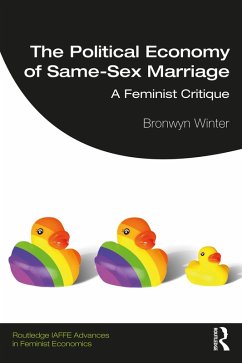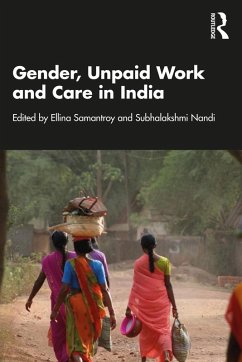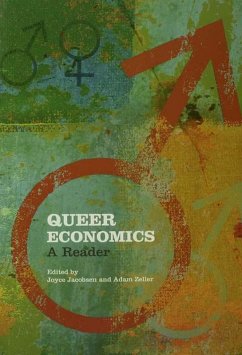
The Industrial Vagina (eBook, ePUB)
The Political Economy of the Global Sex Trade
Versandkostenfrei!
Sofort per Download lieferbar
39,95 €
inkl. MwSt.
Weitere Ausgaben:

PAYBACK Punkte
20 °P sammeln!
The industrialization of prostitution and the sex trade has created a multibillion-dollar global market, involving millions of women, that makes a substantial contribution to national and global economies.The Industrial Vagina examines how prostitution and other aspects of the sex industry have moved from being small-scale, clandestine, and socially despised practices to become very profitable legitimate market sectors that are being legalised and decriminalised by governments. Sheila Jeffreys demonstrates how prostitution has been globalized through an examination of: the growth of pornograph...
The industrialization of prostitution and the sex trade has created a multibillion-dollar global market, involving millions of women, that makes a substantial contribution to national and global economies.
The Industrial Vagina examines how prostitution and other aspects of the sex industry have moved from being small-scale, clandestine, and socially despised practices to become very profitable legitimate market sectors that are being legalised and decriminalised by governments. Sheila Jeffreys demonstrates how prostitution has been globalized through an examination of:
She argues that through these practices women's subordination has been outsourced and that states that legalise this industry are acting as pimps, enabling male buyers in countries in which women's equality threatens male dominance, to buy access to the bodies of women from poor countries who are paid for their sexual subservience.
This major and provocative contribution is essential reading for all with an interest in feminist, gender and critical globalisation issues as well as students and scholars of international political economy.
The Industrial Vagina examines how prostitution and other aspects of the sex industry have moved from being small-scale, clandestine, and socially despised practices to become very profitable legitimate market sectors that are being legalised and decriminalised by governments. Sheila Jeffreys demonstrates how prostitution has been globalized through an examination of:
- the growth of pornography and its new global reach
- the boom in adult shops, strip clubs and escort agencies
- military prostitution and sexual violence in war
- marriage and the mail order bride industry
- the rise in sex tourism and trafficking in women.
She argues that through these practices women's subordination has been outsourced and that states that legalise this industry are acting as pimps, enabling male buyers in countries in which women's equality threatens male dominance, to buy access to the bodies of women from poor countries who are paid for their sexual subservience.
This major and provocative contribution is essential reading for all with an interest in feminist, gender and critical globalisation issues as well as students and scholars of international political economy.
Dieser Download kann aus rechtlichen Gründen nur mit Rechnungsadresse in A, B, BG, CY, CZ, D, DK, EW, E, FIN, F, GR, HR, H, IRL, I, LT, L, LR, M, NL, PL, P, R, S, SLO, SK ausgeliefert werden.













